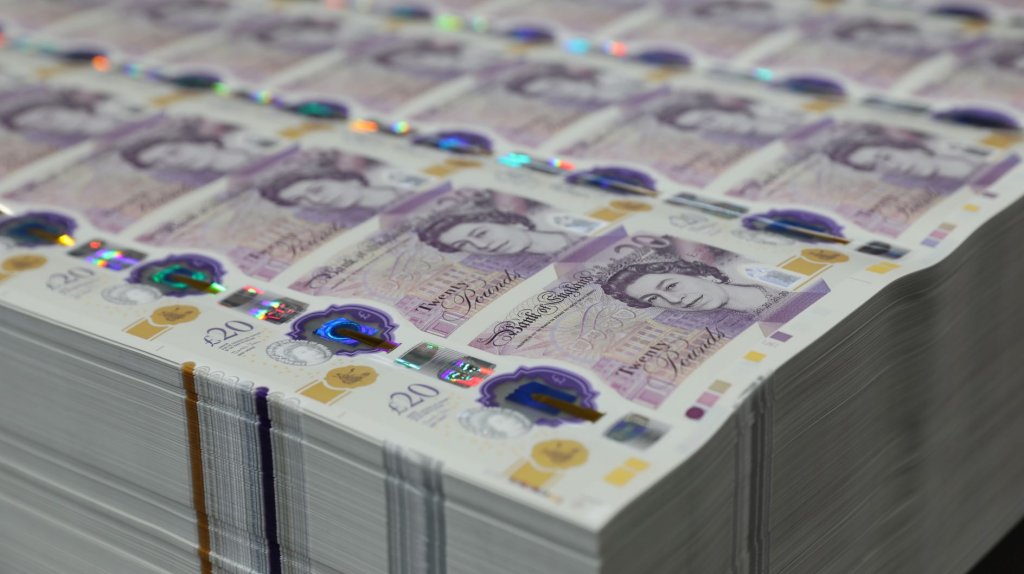Bank Of England Should Investigate ‘Missing’ £50bn Of Banknotes, Says Committee

The Bank of England should investigate where around £50 billion of “missing” banknotes is “stashed”, a committee monitoring the effectiveness of public spending has said.
The Public Accounts Committee said the Bank needs to “get a better handle on the national currency it controls”.
It said authorities have been behind the curve in ensuring access to cash for consumers and businesses, and are failing to understand or act on the dangers of hardship if the UK continues moving towards a cashless society.
The committee said there are implications for public policy and the public purse if a material proportion of the large volume of banknotes whose whereabouts or use are unknown are being used for illegal purposes.
It said the Bank of England does not “appear to have a convincing reason for why the demand for notes keeps increasing” or any real understanding of where around £50 billion of issued sterling notes are, although it acknowledged that it is a trend being seen with other major currencies.
The Bank estimates that 20% to 24% of issued notes are used or held for cash transactions. This leaves about £50 billion of issued banknotes that may be being used overseas for transactions or savings, or held in the UK as unreported household savings or for use in the shadow economy.
Meg Hillier, chairwoman of the Public Accounts Committee, said: “In many areas where you can use cash you’d be hard pressed to find it, at least without paying an ATM fee that may be a substantial percentage of a small withdrawal – yet making frequent, small withdrawals can be a key budgeting tool for those on low incomes, and least able to afford those fees.
“Conversely, £50 billion of sterling notes – or about three-quarters of this precious and dwindling supply – is stashed somewhere but the Bank of England doesn’t know where, who by or what for – and doesn’t seem very curious.
“It needs to be more concerned about where the missing £50 billion is.
“Depending where it is and what it’s being used for, that amount of money could have material implications for public policy and the public purse. The Bank needs to get a better handle on the national currency it controls.”
Concerns were also raised about high stock levels of cash.
At the end of July, the Bank held contingency stocks with a value of £30.4 billion, against minimum guidance levels of £15.6 billion.
The committee said: “We recognise that the Bank would not wish to risk running out of notes. However, we do not understand the Bank’s rationale for holding such high levels of stocks.”
The Royal Mint and the Treasury should also set out how they are ensuring plans for manufacturing coins are sustainable and cost effective, the report said.
By March, the Mint had no plans to manufacture any 2p or £2 coins.
Although there has been a recent increase in demand for coins during the coronavirus pandemic, this is expected to be temporary, the report said.
The committee said the oversight of the production and distribution of banknotes and coins is unclear and fragmented.
There is no single body responsible for making sure people and businesses have access to cash. The Treasury, the Financial Conduct Authority, the Payment Systems Regulator and the Bank of England all play roles.
There are gaps in oversight of the cash system where no one appears to be responsible, such as monitoring how well it performs, or the extent to which businesses are continuing to accept cash, the report said.
The Treasury should give overall responsibility for the cash system to a single body, with the other bodies having clearly defined supporting roles, it recommended.
It said bodies are not acting with sufficient urgency to protect more vulnerable groups and communities, particularly in rural areas.
In the two years to January 2020 the number of ATMs fell by 12%, and the Covid-19 pandemic has led to a further rapid decline in cash use.
The committee recommended that by January 2021, the Treasury and the Payment Systems Regulator should give an assessment of cash only being available from paid-for cash machines, or through Post Office counter withdrawals. They should also set out steps to ensure adequate access to free cash machines.
By the end of March at the latest, the Treasury should publish a clear plan of action, including draft legislation for securing access to cash across the UK.
The plan should include clear commitments, including spelling out what the regulators are expected to achieve, the committee said.




